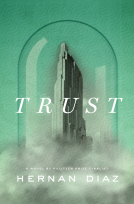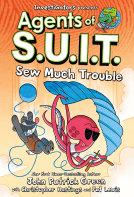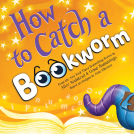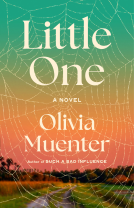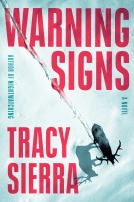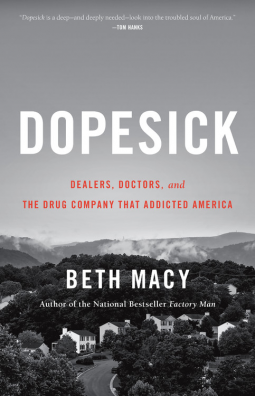
Dopesick
Dealers, Doctors, and the Drug Company that Addicted America
by Beth Macy
This title was previously available on NetGalley and is now archived.
Send NetGalley books directly to your Kindle or Kindle app
1
To read on a Kindle or Kindle app, please add kindle@netgalley.com as an approved email address to receive files in your Amazon account. Click here for step-by-step instructions.
2
Also find your Kindle email address within your Amazon account, and enter it here.
Pub Date Aug 07 2018 | Archive Date Jan 17 2020
Talking about this book? Use #Dopesick #NetGalley. More hashtag tips!
Description
From the New York Times bestselling author of Factory Man comes the only book to fully chart the opioid crisis in America—an unforgettable portrait of the families and first responders on the front lines.
In this masterful work, Beth Macy takes us into the epicenter of America's twenty-plus year struggle with opioid addiction. From distressed small communities in Central Appalachia to wealthy suburbs; from disparate cities to once-idyllic farm towns; it's a heartbreaking trajectory that illustrates how this national crisis has persisted for so long and become so firmly entrenched.
Beginning with a single dealer who lands in a small Virginia town and sets about turning high school football stars into heroin overdose statistics, Macy endeavors to answer a grieving mother's question—why her only son died—and comes away with a harrowing story of greed and need. From the introduction of OxyContin in 1996, Macy parses how America embraced a medical culture where overtreatment with painkillers became the norm. In some of the same distressed communities featured in her bestselling book Factory Man, the unemployed use painkillers both to numb the pain of joblessness and pay their bills, while privileged teens trade pills in cul-de-sacs, and even high school standouts fall prey to prostitution, jail, and death.
Through unsparing, yet deeply human portraits of the families and first responders struggling to ameliorate this epidemic, each facet of the crisis comes into focus. In these politically fragmented times, Beth Macy shows, astonishingly, that the only thing that unites Americans across geographic and class lines is opioid drug abuse. But in a country unable to provide basic healthcare for all, Macy still finds reason to hope—and signs of the spirit and tenacity necessary in those facing addiction to build a better future for themselves and their families.
Advance Praise
"Beth Macy is not satisfied with myths or side-bars. She seeks the very hearts of the people who are running the long marathons of struggle and survival—of Life. Dopesick is another deep—and deeply needed—look into the troubled soul of America." —Tom Hanks
"Beth Macy writes about our opioid epidemic but Dopesick is not about the drugs. It's a book about kids and moms and neighbors and the people who try to save them. It's about shame and stigma and desperation. It's about bad policy, greed and corruption. It's a Greek tragedy with a chorus of teenage ghosts who know how to text but can't express how they feel." —Senator Tim Kaine
"I'm still in withdrawal from Dopesick, a harrowing journey through the history and contemporary hell-scape of drug addiction. Beth Macy brings a big heart, a sharp eye, and a powerful sense of place to the story of ordinary Americans in the grip of an extraordinary crisis." —Tony Horwitz, Pulitzer Prize winning author of the National bestseller Confederates in the Attic
"Dopesick will make you shudder with rage and weep with sympathy. Beth Macy's empathy and fearless reporting reaches beyond the headlines to tell the stories of how real people have been left to cope with the fallout of corporate greed, and the willful blindnesses of businesses and the government. Macy again shows why she's one of America's best non-fiction writers" —Brian Alexander, author of Glass House
"All prior books on this topic, including my own, were written as if describing the trunk, the ear, or the tail, without quite capturing the whole elephant. Journalist Beth Macy has packed the entire elephant and then some into one book. Her writing jumps from the page with a fast-paced narrative, colorful and inspiring characters, vivid historical detail, and a profound sense of place." —Anna Lembke, author of Drug Dealer, M.D., psychiatrist and professor of addiction medicine at Stanford University School of Medicine
Available Editions
| EDITION | Other Format |
| ISBN | 9780316551243 |
| PRICE | $28.00 (USD) |
| PAGES | 384 |
Links
Average rating from 45 members
Featured Reviews
If you want to know the backstory of America's opioid epidemic, look no further than Beth Macy's meticulously researched book. The personal vignettes bring a face to the stories we read about in the paper. I know many people will compare it to Hillbilly Elegy, which I learned a great deal from, but this book raised more questions for me. I think it would be a fantastic book club discussion. It points out a broken health care system that will continue to let people down if we don't make changes soon.
I received an advanced electronic copy of this book courtesy of NetGalley. Thank you for the opportunity to read it.
 Geoffrey S, Librarian
Geoffrey S, Librarian
Beth Macy has crafted a work that expertly utilizes both a grander narrative and the personal tragic tales of numerous figures and families, all to great effect show how the ongoing epidemic came to be.
This is a work that will tear out your heart before filling you with a ferocious fury. Fury at the shameless drug companies who targeted economically depressed communities with their painkillers. Fury over the countless warnings from men and women about the new and growing crisis that went ignored until addiction crept from devastated rural areas and into the suburbs and cities. Fury over the absurdly patchworked American healthcare system that makes it so difficult for the addicted to get the care they need. Fury over a system that punishes the victims of the epidemic far more than the perpetrators ever could be. Fury over the countless parade of tragedies that affect the families covered in this work. "Dopesick" just will not stop filling you with rage alongside your new knowledge until you've reached the very last page.
In other words, Macy has done her job incredibly well here. If you want to better understand the opioid epidemic that still rages on, this is THE book to read.
 Librarian 483134
Librarian 483134
A fascinating look into the history and reality of the opioid epidemic. Macy did her research and compassionately tells the story of those touched and living in the throes of the epidemic.
 Librarian 396800
Librarian 396800
I highly recommend this book for anybody and everybody to read. I know that opioid addiction is all around me. I grew up in southwestern Ohio, live in Tennessee now, but I've never had direct contact with it. Reading about the struggles people face, and the shameful way opioid pills were allowed to circulate so freely, helped me understand the wider problem and to empathize with people struggling to beat their addictions.
 Lindsay J, Librarian
Lindsay J, Librarian
A compelling work of investigative journalism that lays out how we arrived at the country’s opioid crisis, and where we go from here. Macy’s narrative humanizes the news stories and introduces readers to a cast of characters ensnared on all sides of addiction.
This book, Dopesick, is an eye-opening look into the world of opioid addiction. It takes the reader through the history of opioids from the 1920’s through today. The author does a great job of personalizing the face of addiction throughout Appalachia, Maine, and other rural settings of today. Since everyone has been touched by this plague, I highly recommend this book to help people understand how it began, and where it is headed in the future.
 Michelle S, Reviewer
Michelle S, Reviewer
In 2012, author and investigative social journalist, Beth Macy began writing about the worst drug (heroin) epidemic in world history. “Dopesick: Dealers, Doctors, and The Drug Company That Addicted America” began in the hills and valleys of Appalachia, the mid-western rust belt, rural Maine before rapidly spreading throughout the U.S. In 2016, 64,000 Americans perished from drug related causes and overdoses-- outnumbering the total of those killed during the Viet Nam War. Macy explored the terrible destructive impact on society, those who have helped and harmed, and the brave individuals sharing their own stories of tragedy and loss, casting aside stigma and shame to alert and help others.
In the late 1990’s, Appalachian country doctor (St. Charles, Virginia) Art Van Zee M.D. was among the first to sound the urgent alarm how OxyContin had infiltrated his community and region. Patients were admitted to hospital ER’s in record numbers from drug related causes. Rates of infectious disease including Hepatitis C, along with petty and violent crime had increased substantially, a police car was fire-bombed—addicts were desperate for cash to support their drug habit, an elderly patient had resorted to selling pills from his nursing home bed. Van Zee called public meetings to advocate and alert others of the opioid health crisis, and didn’t hesitate to file complaints against Purdue Pharma for aggressive marketing campaigns promoting OxyContin. By 2001, he and Sister Beth Davies were attending two funerals per day of the addicted dead.
In 2007, with over $2.8 billion USD earned in drug profits, Purdue Pharmaceuticals was found guilty in federal and civil criminal courts for their role/responsibility for creating the opioid epidemic, for “misbranding OxyContin”: with aggressive marketing techniques that downplayed and minimized the potential for addiction. The $600 million USD fine was worth the risk for Purdue; the executives charged were forced to listen to victim impact statements, and were compared to Adolf Hitler and the mass destruction of humanity, yet these men served no jail time. Both Doctor Van Zee and Sister Davies were outraged that none of the fine was allocated for drug recovery and addiction programs. Instead, it was appropriated for Medicaid/Medicare reimbursement and for criminal justice and law enforcement.
Macy documents the vast suffering, heartbreak of the families, friends, medical staff and first responders, the foster parents, clergy left behind to carry on after destruction and death had taken its toll. The closed down factories, lumber mills, furniture manufacturing warehouses and stores, coal mines-- jobs that had once sustained the middle class were grim reminders that for the average American-- life would never be the same again. Some desperate families impacted by “the disease of despair” had lost life savings attempting to pay for costly drug rehabilitation programs for loved ones, only to realize addiction was a lifelong process and the likelihood of relapse might be a day away. Providers of rehab facilities were not in agreement over MAT (medication assisted treatment) though medical experts contend that MAT is absolutely necessary to battle the intense cravings of addiction and increase the rates of successful treatment.
Many of the stories were harsh and brutal. Too many politicians and policy makers believe addiction is a personal moral failing and criminal offense rather than a treatable disease that robs victims of their dignity and freedom of choice. Macy’s book easily compares to Sam Quiones outstanding award winning book “Dreamland: The True Tale of America’s Opiate Epidemic” (2015). Macy is the author of the bestselling “Factory Man” (2014) and “Truevine” (2016). ** With thanks and appreciation to Little Brown and Company via NetGalley for the DRC for the purpose of review.
 Annie F, Reviewer
Annie F, Reviewer
This is the book we need to understand the world we are living in. Profits vs. people. Corporations getting richer while we get sicker. The illegal drug trade fed by unethical prescribing practices. A nuanced and well-researched look at the complexities and corporate culpability in the opioid/heroin epidemic.
 Paul C, Educator
Paul C, Educator
“For centuries, dealers of opium, morphine, and heroin understood that an addicted person’s fear of running out – of becoming dopesick – portended one hell of a business model.”
The mother’s search, the politicians’ platitudes, the fixer’s cooked numbers, the prosecutor’s insomnia, the drug company’s pitch, and the addict’s dopesick wails. Traveling up and down the Shenandoah Valley’s Interstate 81, Beth Macy captures every face of the opioid crisis in her landmark book Dopesick. In a tone that is compassionate, yet urgent and frustrated at times, her book is an important exposé showing all the unfortunate reasons why rural America has become a breeding ground for OxyContin and heroin addiction.
Layered with the history of the opiates, from opium to morphine to fentanyl to heroin, Macy describes how addiction has cut across all races, classes, and geographic lines. She powerfully discusses the stigma, fear, and misinformation that has created two sides in the search for care, one advocating for imprisonment of criminals and the other for treatment of patients. She details the role the law, and local and federal politics play in the options for rehabilitation. And how big pharm has influenced and encouraged a quick, but dangerous fix for pain to doctors and counselors over the past 20 years.
From Roanoke to Maine to Humbolt County, the opioid crisis has swept across the United States with pundits on every side calling for action. Macy cuts through the debate with well-documented research that advocates for a combination of Medication-Assisted Treatment and a twelve step program. Word by word she builds a most striking argument for change. Even in the face of a lack of federal action and the complaints of nimbys, the author provides real solutions and hope. Macy’s work and her writing is indispensable; this book is a must-read for every politician and parent, and really every American. The Highest Recommendation.
Thank you to NetGalley, Little, Brown, and Co, and Beth Macy for an advanced copy for review.
A very important and engaging book. This will be a great fit for our non-fiction section at the library.
I can't properly express the importance of this book. As a person who lives with multiple chronic pain conditions, including Lyme disease and fibromyalgia, I know all too well how easy it could be to fall into the trap of addictive prescription medications. Doctors hand out the pills, because that's what they were taught to do and, really, what else is there to do for a patient in chronic pain? And up until recently, few doctors and patients understood how horribly addictive medications like Oxycontin really are. So no one was warned. In fact, the opposite happened; doctors were told it was absolutely safe, and consequently they helped create an epidemic of addiction.
Too many people remain in their bubble, thinking addiction only affects the poor or the weak or someone else's kids. Until addiction strikes someone close to them, and their world is tipped upside down. We've cultivated a society in which people believe prescription medications are safe, and that Oxy isn't dangerous like heroin, when Oxy really is just heroin wrapped up in a prettier package.
This book takes on the myth of Oxycontin's safety, and how it leads to heroin use because that's the cheaper option. We see exactly how the drug's manufacturer intentionally downplayed the addiction factor and specifically targeted their marketing strategy at vulnerable areas of the country. These pharmaceutical companies are more dangerous than the drug dealers importing heroin and cocaine, and yet they continue getting rich off the addicts they create.
Beth Macy shows us exactly where and how opioid addiction began, how it evolved, and where it led. We meet addicts, many of whom are middle class kids and young adults from good homes, and not the stereotypical gangbanger or disenfranchised poor. We see the destruction and the desperation through their eyes.
The point here is not to label all opioids as evil, but to educate on their use and abuse. I really hope everyone reads this book.
 Librarian 437199
Librarian 437199
This is a powerful, well-researched book about the origins of and current state of the opioid epidemic in Appalachia and across the U.S. It's an eye-opening (at times shocking and disheartening) look at the role Big Pharma and the medical industry have played in the epidemic. I highly recommend this book to anyone interested in this subject. I look forward to reading other books by this author. Thank you to NetGalley and the publisher for allowing me to read this outstanding book.
 Linda S, Librarian
Linda S, Librarian
DOPESICK by Beth Macy is a fascinating work of non-fiction that deals with "Dealers, Doctors, and the Drug Company that Addicted America." Macy, an award-winning journalist and author of Factory Man, explores the opioid crisis through the lives of four families whose teenage children's addiction resulted in devastating emotional and economic costs. As she tells it, this is a story of rehab and prison, of recovery and relapse, of "the crushing and sometime contradictory facets of an inadequate criminal justice system often working at cross-purposes against medical science." Macy argues that "the flood of painkillers pushed by rapacious pharma companies," particularly Purdue Pharma, began in isolated and politically unimportant places. A resident of Roanoke, Virginia, she attempts to "retrace the epidemic as it shape-shifted across the spine of the Appalachians, roughly paralleling Interstate 81 as it fanned out from the coalfields and crept north up the Shenandoah Valley." In addition to the collapse of work, she points to denial coupled with fear and ready stereotypes ("affliction of jobless hillbillies") plus the lack of resources for local papers to cover the enfolding story as several reasons for why it took so long for this epidemic to be widely recognized.
The abuse of opioids is a high interest topic for our students, both in Health classes and for Junior Theme and they will find much valuable information in Macy's work, as well as other titles such as Sederer's The Addiction Solution and Quinones' Dreamland (to which Macy refers). DOPESICK is extensively researched, with more than twenty percent of the book devoted to notes. Chosen as an Amazon Best Book of August 2018, DOPESICK also received starred reviews from Booklist, Kirkus and Publishers Weekly.
Link in live post: https://treviansbookit.blogspot.com/2018/05/the-addiction-solution-by-lloyd-sederer.html
Readers who liked this book also liked:
John Patrick Green; Christopher Hastings
Children's Fiction, Comics, Graphic Novels, Manga, Middle Grade
